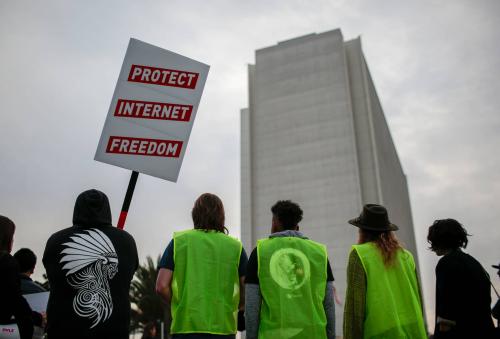On May 10, President Obama announced that Solicitor General Elena Kagan is his choice to fill the vacant seat on the U.S. Supreme Court. Scholars from around the halls of Brookings offer their thoughts on the pick, the upcoming confirmation process, and what Kagan will bring to the court.
Sarah A. Binder
, Senior Fellow, Governance Studies
Elena Kagan will be confirmed. Her confirmation for solicitor general last year attracted 7 Republican votes—including votes from conservatives Jon Kyl and Tom Coburn and from moderates Olympia Snowe and Susan Collins. With a Democratic Senate and a smattering of Republican support from across the ideological spectrum, Kagan should be confirmed before the Senate breaks for the summer.
William A. Galston, Senior Fellow, Governance Studies
Elena Kagan would bring to the Court a number of important strengths—most notably, extensive experience in the executive branch and a gift for conciliation across ideological lines. Because she enjoys such wide respect, her confirmation should not be in doubt. In selecting her, President Obama is getting not just a vote, but a voice that could over time alter the dynamic of the Court.
Thomas E. Mann, Senior Fellow, Governance Studies
By virtue of her intelligence, personality and age, Elena Kagan has the potential to become a major figure on the Court—over time leading a center left progressive jurisprudence based more on judicial restraint than activism. With strong support from prominent conservatives based on her leadership of the Harvard Law School, her confirmation is a near certainty.
Darrell M. West, Vice President and Director, Governance Studies
The advantage of the Kagan nomination is she already has been vetted by the U.S. Senate through her solicitor general position. Sixty-one senators examined her professional credentials, legal background, financial records, written publications, and oral presentations, and concluded she was fully qualified for the job. Thirty-one senators voted no. Although some may make the argument that there is a higher threshold for Supreme Court justices, it is hard to imagine many senators changing their minds from how they publicly voted last year. Those individuals are on record as supporting her qualifications and background. [This post originally appeared on POLITICO.]



Commentary
Around the Halls: Elena Kagan Chosen for Supreme Court
May 10, 2010